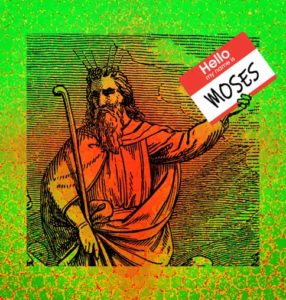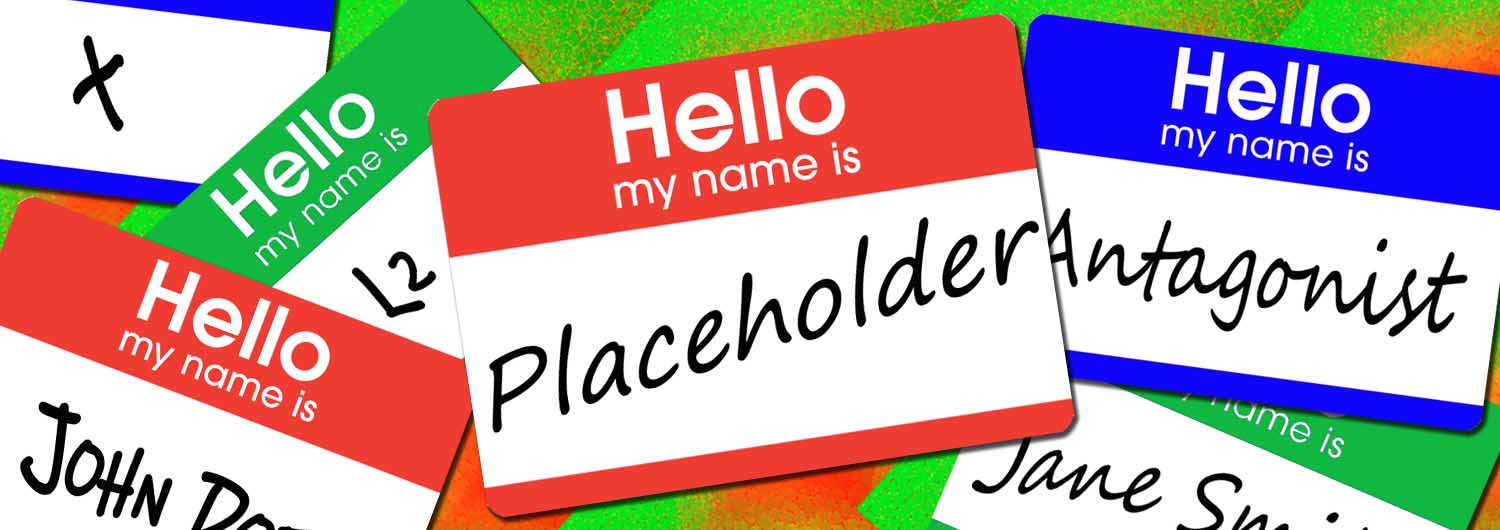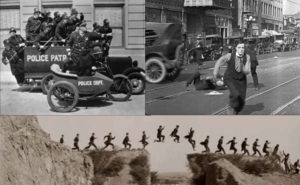
“What’s in a name?” Juliet asks, rhetorically. And goes on to insist that “a rose by any other name would smell as sweet.” She’s right – but only as far as the rose goes. She’s engaged in this monologue because she’s discovered the boy she’s fallen in love with, Romeo, is a Montague. And the Montagues are the sworn enemies of her own Capulet family. If only he’d been called Romeo Smith, how differently things might have turned out.
(Wait. Smith is hardly Italian. Better make that – short pause to consult Google translate – Romeo Ferraio!)
Names are important
Love them or hate them, our names are important to us. They’re things we’ve grown up with. All our lives we’ve associated them with ourselves. We’ve enjoyed our names or fought against them, kicked them about and altered them (or let other people alter them). We’ve signed documents with them, presented ourselves by them. They mean something.
In fiction names perform a similar function. They label, and to some extent they describe, a character. On the one hand they are a little box in which the author, over the many pages of a novel, can place features that are unique to the character that bears the name. After a time, if the author has been successful, mentioning the name summons up the character in the mind of the reader. The name becomes a shorthand for the character.
Romy Hope and Matt Strong
On the other hand, the name itself may convey something to the reader without the author adding any further information. Naming a character Hope or Strong may be a bit obvious, but it can quickly establish a significant personality trait, which – in a short story perhaps – may save the author an awful lot of words. (And then you can spend the rest of the story undermining expectations by making Hope downhearted or anxious; Strong someone who is weak and vacillating.)
But fictional names can also be ways to explore characters. Just as people in real life don’t always like their names, or sometimes want to change them, maybe our characters feel the same way. Name a character Martin or Rosemary and discover Martin may prefer Marty, Mart or Matt. Or find that Rosemary really hates to be associated with a herb, or “that damn folk song!” She prefers to be Rory or Romy. (And then find that she calls Martin: Smarty-Marty.)
It gives so much more to explore.
Placeholder names

All of which is to say that I find it really difficult to understand other writers who tell me they use “placeholder” names while they are writing. “My protagonist is X, my antagonist is Y. My love interest is L1 and the character X has casual sex with is L2.” Why would you do that?
But, I’ve heard it so often I have to accept, it’s just the way some writers are most comfortable working. I suppose they aim to get the story down and worry about the names later.
For a period I shared texts on the (now defunct) YouWriteOn website. You got randomly assigned other writers’ texts and you had to review and rate them. In return, other writers reviewed and rated yours. I was sent this US Marine/SWAT based thriller story to read, and it wasn’t bad.
There was a large cast of (male) characters, though. All the good-guys, and all the drugs gang they were chasing. And I started to notice a naming pattern. There was an Adam, and a Seth. There was Enoch, Caleb and Jared. Then Aaron and Noah, Levi and Moses. I wondered when Job would put in an appearance … and he did!
After a few pages the cast list had me almost convinced the author was describing a hit squad of Mossad agents targetting an ultra-orthodox Jewish sect. I wrote as much in my comments. The author responded with incredulity, and not a little irritation. He was just using these Bible names as placeholders, he wrote. “Obviously.”

I can’t do that!
As long as I’m writing something character-based, I have to name my characters. Without a name I feel I don’t know them. I can’t know them. For me, names are the keys to my characters’ souls.
These characters are my children. How much time and effort do parents-to-be put into choosing the names of their anticipated children? Why would I not put at least a fraction of the same effort into naming my characters?
It’s not like it’s difficult nowadays. There are dozens of websites with lists of “names for your baby.” Many include information such the original meaning of the name, the ethnic origin of the name, examples of famous people who have had this name. Some websites will also give a cabbalistic or numerological interpretation of the name.
OK, a lot of this is dodgy. But that doesn’t matter because I’m not relying on it for concrete facts. I’m mining it for associations and qualities that will help me round my characters out.
I feel, if I put this effort into my characters, then they will reward me. So far, they have. True, sometimes what they reward me with knocks the story I thought I was telling off course. But then I’ve found a different story as a result.
And never have I felt that any of my characters would be just the same if they had a different name.
What’s your practice in naming your characters? Do you use placeholders or do you name your characters before you even start writing?
Notes
Most of this post also appeared as my member’s blog post of the week on the website of Writers Abroad.
This is the first of a planned occasional series of posts about naming characters.
A word about the illustrations. The line drawings in the Romeo and Juliet and Moses pictures come from the free-to-use ClipArt ETC collection at the University of San Francisco, to whom many thanks!




